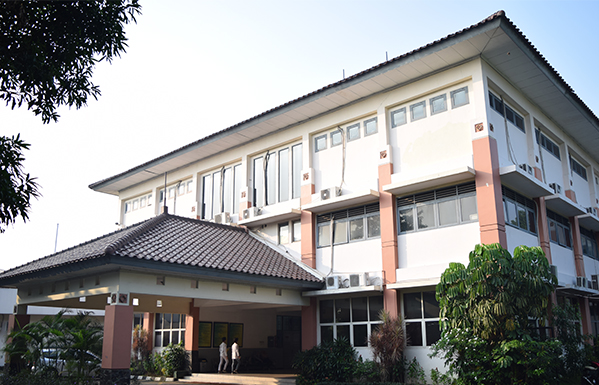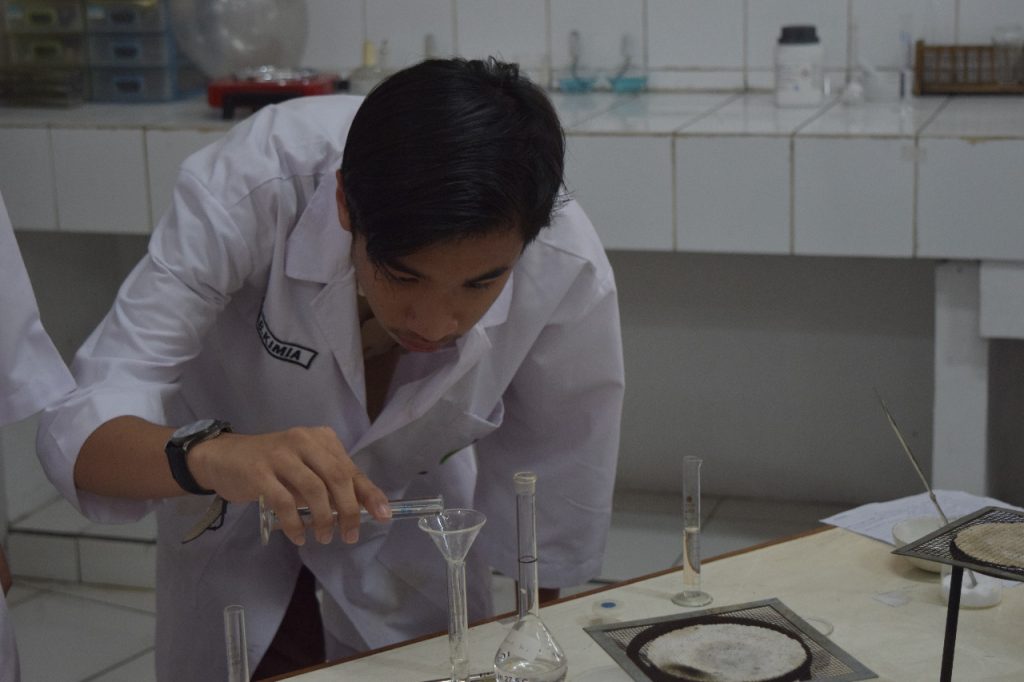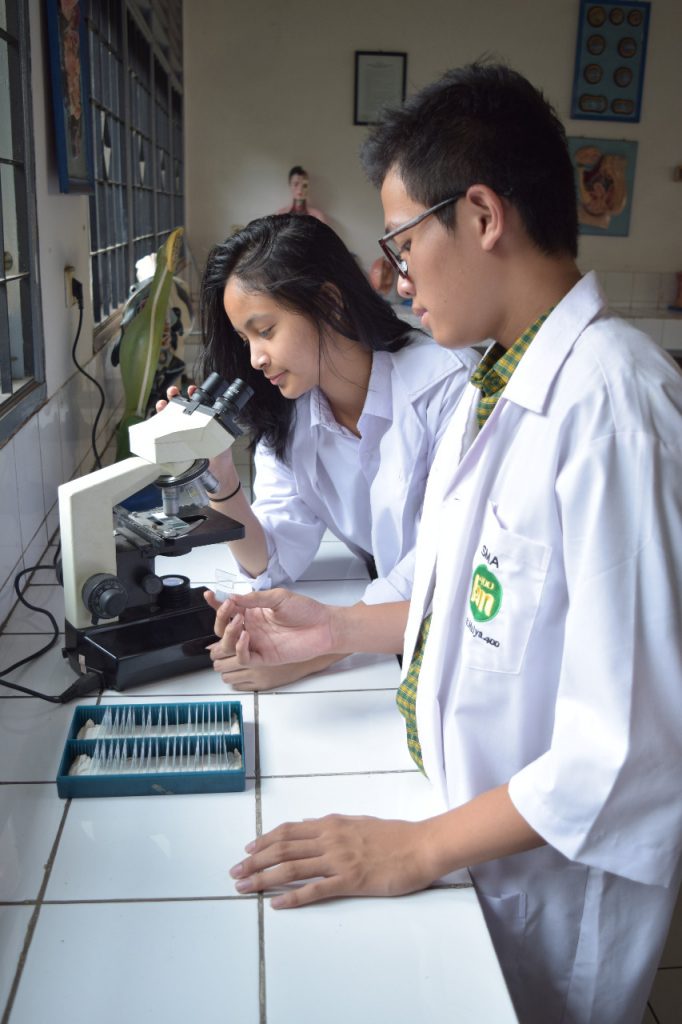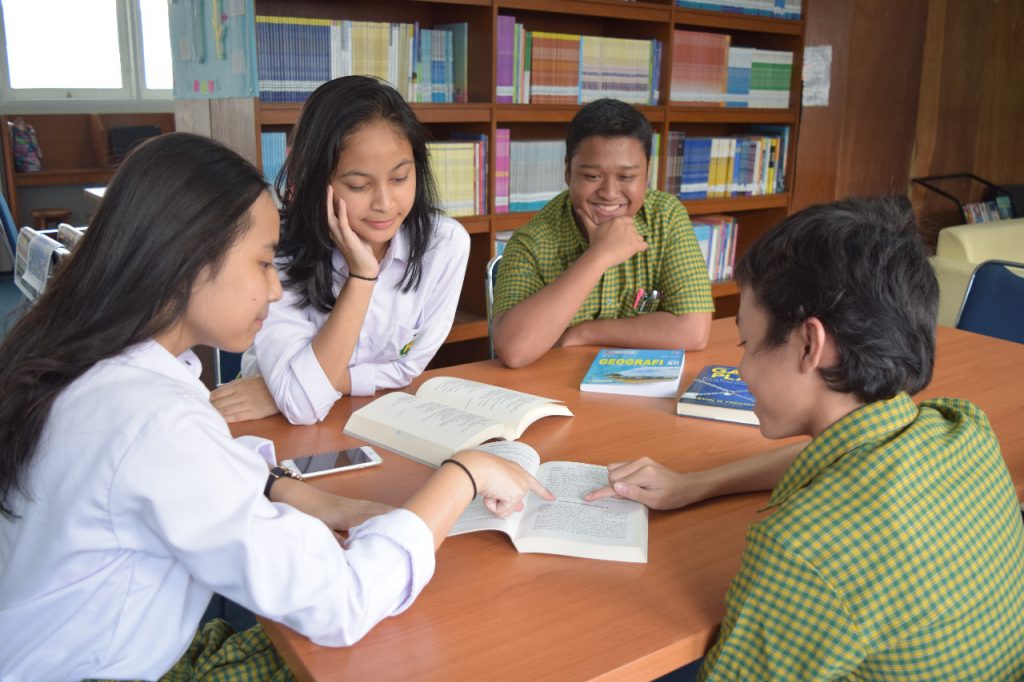Senior High
SCHOOL PROGRAM
- Islamic and Qur’anic Program
- Excellent Academic Program
- Student Development
- A Patriotism & Nationalism Program
- Global Competency Program
INTRACURRICULAR
- Character development & Islamic Values
- National Curriculum Regular Class & Semester Credit System (SKS)
- Cambridge As Level Curriculum
COCURRICULAR
- Religious Activities:
a. Islamic Character Habituation
b. Daily Prayer, Dhikr, Tadarus
c. Dhuha Prayer
d. Sunnah Fasting
e. Ramadhan Camp - POSBA and Foundation Programs
- Education seminar and health life campaign
- Leadership Training
- Youth Service Day
- Overseas / homestay / sister school
- Outbound (Motivation Camp)
- Entrepreneurship Program
- BM Smart and Competition
- Cultural Arts Exhibition
- Nusantara Exploration
- Dialogue & Collaboration
- National and Islamic ceremony
- Career Day and University preparation
TEACHING LEARNING FACILITIES
- Language, Computer, Physics, Piology, Chemistry Lab
- LCD projector for each class
- Smart board and multimedia technology
- Sports Field (basketball, futsal, badminton)
- Praying Room
- Canteen
- Hall
- Internet Access
- Academic System (My Campus)
EXTRACURRICULAR
- Religious Groups : Tahfidz, The art of reading the Koran
- Skill Groups : Paskibra, Scouts, Photography
- Science Group : KIR, Olympics, STEAM
- Art Group : Tari Saman, Traditional and Folk Dance, Art Painting, Band,
Vocal Group - Sports Group : Futsal, Badminton, Athletics, Basketball, Pencak Silat
GRADUATE – TARGETS
- Applying Islam values and noble character
- Achieving a TOEFL Score > 550
- Passing the National Examination
- Acquiring AS Level certificates
- Admitted at famous universities
(national and overseas)
LEARNING ACTIVITIES
- Providing the teaching service whole heartedly with to maximize the potential of the students. Qualified learning process in line with the principles of multiple intelligence.
- Implementing the 21st century learning paradigm that instills literacy, presentation, communication and collaboration skills.
- Involving students to actively participate in learning process (student centered) and be capable of utilizing various learning. Resources. Learning activities are carried out in a variety of ways in the classroom, mowving class and field trip.
- Applying activities of experiential learning. The approach is carried out with enjoyful learning and mastery process with the principle of one stop services.
- Student learning outcomes in the form of academic value and product learning outcomes. National and international standard academic values.
- University Preparation Program (National and Overseas)








